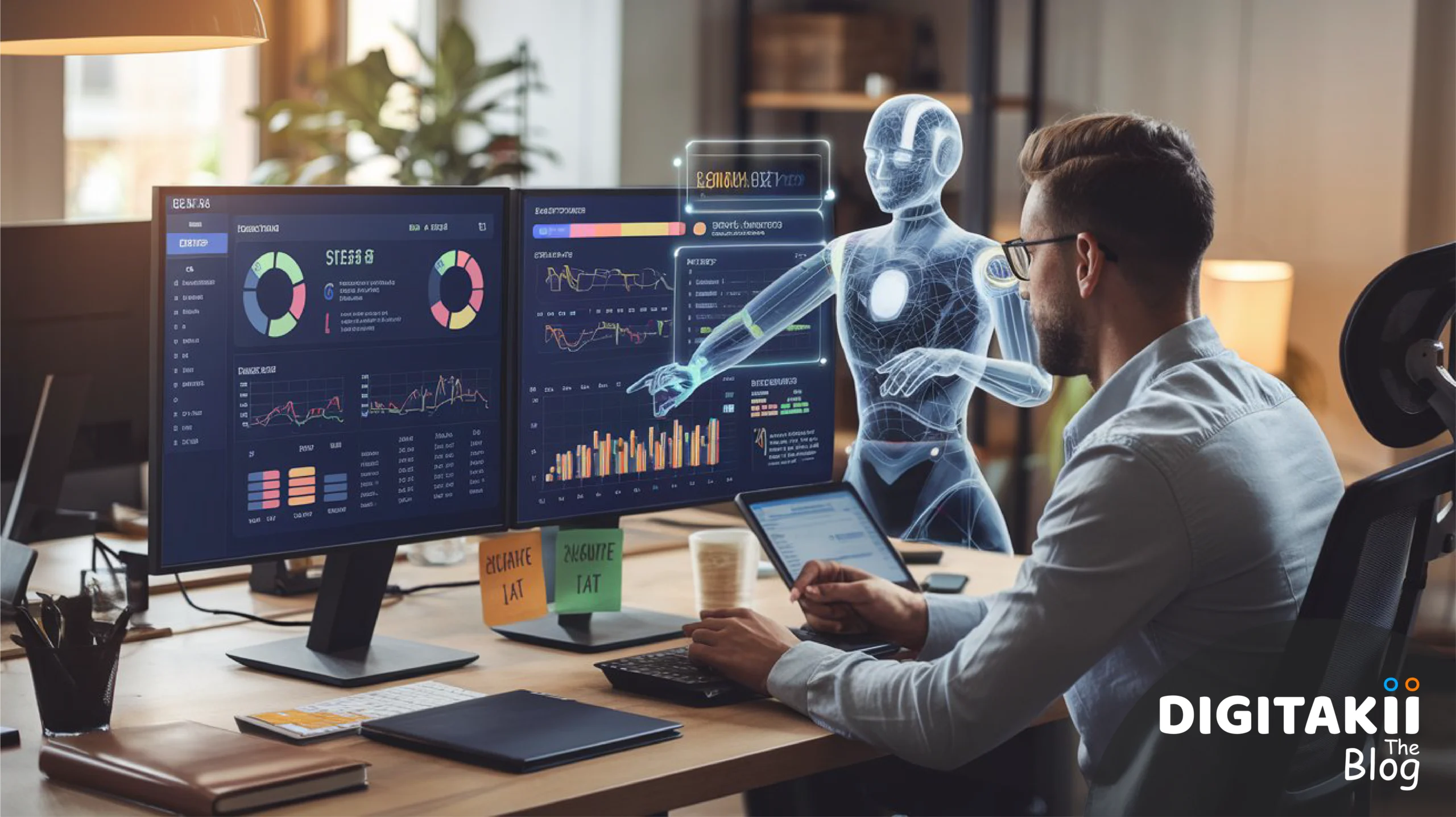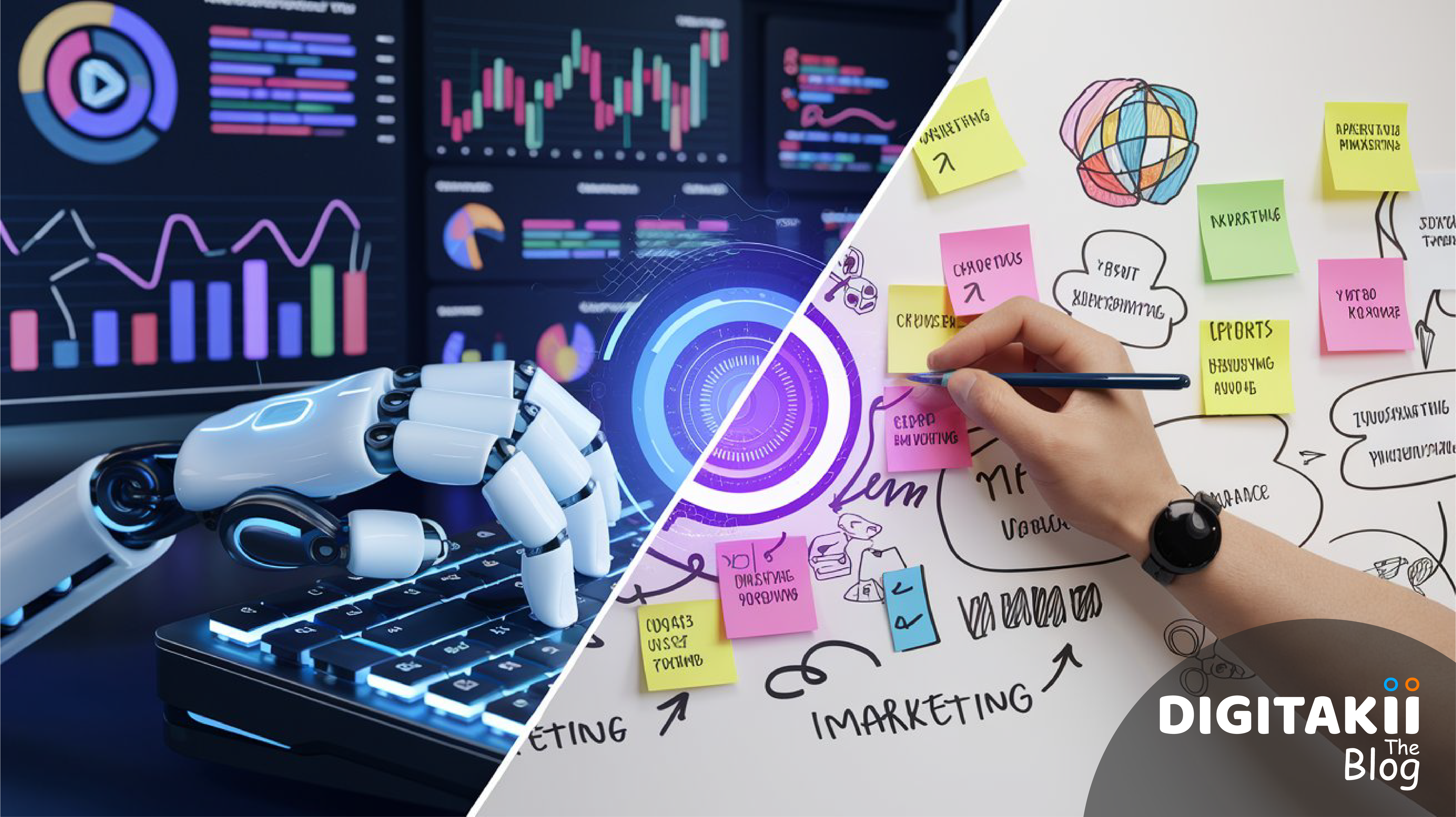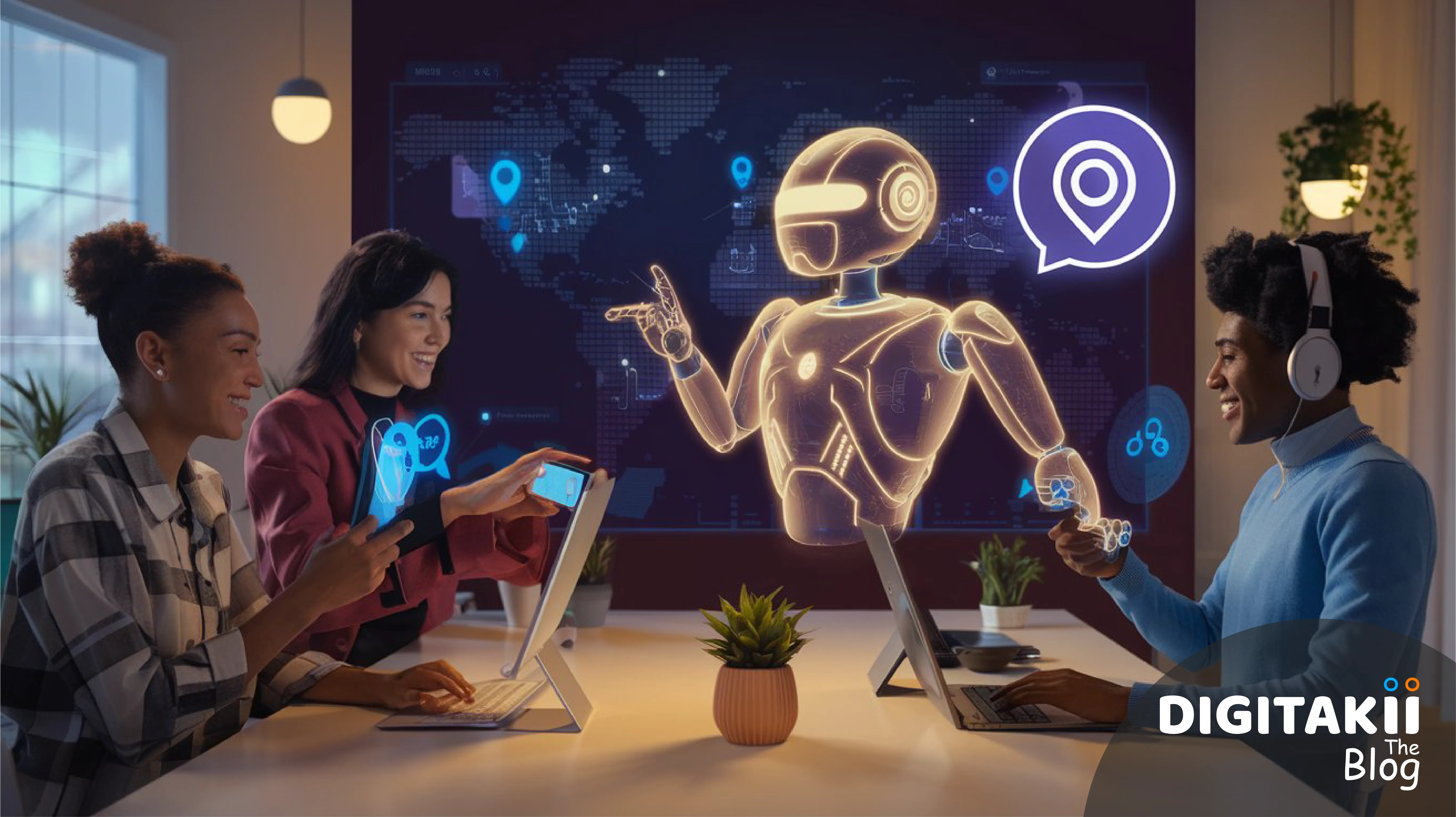Hey there, fellow digital marketers and SEO enthusiasts! I’m thrilled to share my journey of discovering how artificial intelligence (AI) has revolutionized my SEO strategy. If you’re looking to take your search engine optimization game to the next level, you’re in for a treat. In this article, I’ll walk you through my personal experiences and insights on leveraging AI to supercharge your SEO efforts. So, grab a cup of coffee, and let’s dive into the exciting world of AI-powered SEO!
My AI-SEO Awakening
I remember the day like it was yesterday. I was staring at my computer screen, overwhelmed by the sheer amount of data I needed to analyze for our company’s latest SEO campaign. Keywords, backlinks, competitor analysis – you name it, I had to deal with it. That’s when it hit me: there had to be a better way.
Enter AI. I’d heard whispers about how artificial intelligence was changing the game in various industries, but I was skeptical about its application in SEO. Boy, was I in for a surprise!
The AI-SEO Revolution: My Personal Journey
1. Smarter Keyword Research
My first foray into AI-powered SEO was with keyword research. I used to spend hours manually sifting through keyword ideas, trying to find that perfect balance between search volume and competition. It was like looking for a needle in a haystack.
Then I discovered AI-powered keyword research tools. These smart algorithms analyzed vast amounts of data in seconds, providing me with insights I never thought possible. They didn’t just show me keyword variations; they understood user intent and even predicted upcoming trends.
One day, while working on a client’s gardening website, the AI tool suggested “vertical herb gardens for small spaces” – a term I hadn’t considered. We created content around this keyword, and within months, it became one of the top-performing pages on the site. That’s when I realized: AI wasn’t just making my job easier; it was making me better at it.
2. Content Creation and Optimization
Content has always been king in SEO, but creating high-quality, relevant content consistently is no small feat. I used to struggle with writer’s block and ensuring our content ticked all the SEO boxes without sounding robotic.
AI-powered content tools changed the game for me. They didn’t write the content for me (because let’s face it, nothing beats the human touch), but they became my brainstorming partner and editor-in-chief.
I remember working on a piece about sustainable fashion. The AI tool analyzed top-performing articles on the topic and suggested key points to cover, questions readers often asked, and even helped me structure the article for maximum impact. The result? A comprehensive, engaging piece that not only ranked well but also resonated with our audience.
3. Technical SEO Made Simple
Technical SEO used to be my nemesis. Crawling through pages of code, identifying issues, and fixing them was time-consuming and, frankly, not my forte. AI-powered site auditing tools became my secret weapon.
These tools crawl websites faster than any human could, identifying issues like broken links, duplicate content, and page speed problems in minutes. But what really blew my mind was how they prioritized these issues based on their impact on SEO.
I once ran an audit on a client’s e-commerce site and discovered that their product pages weren’t being indexed properly due to a robots.txt error. It was a simple fix that the AI tool highlighted as high-priority. After resolving it, we saw a significant boost in organic traffic to those pages. It was like finding hidden treasure!
4. Predictive Analytics and Trend Forecasting
One of the most exciting aspects of AI in SEO is its ability to predict trends and analyze patterns. It’s like having a crystal ball for search engine behavior!
I remember when voice search started gaining traction. Our AI tools were already suggesting optimizations for voice queries months before it became a mainstream SEO consideration. This foresight allowed us to stay ahead of the curve and position our clients as early adopters in their respective industries.
5. Personalized User Experiences
AI doesn’t just help with behind-the-scenes SEO; it’s also revolutionizing how we create personalized experiences for users – a factor that increasingly influences search rankings.
We implemented AI-powered chatbots on several client websites. These chatbots didn’t just answer queries; they learned from user interactions and helped us understand what our audience was really looking for. This insight informed our content strategy and site structure, leading to improved engagement metrics and, consequently, better search rankings.
The Human Touch: Why AI Can’t Do It All
Now, before you think I’ve gone full robot, let me be clear: AI is a powerful tool, but it’s not a magic wand. Throughout my journey, I’ve learned that the most effective SEO strategies combine the analytical power of AI with human creativity and intuition.
AI can crunch numbers and identify patterns, but it can’t understand the nuances of human emotion or create truly original ideas. It can’t build relationships with other websites for backlink opportunities or negotiate partnerships that can boost your SEO indirectly.
I’ve found that the best results come when I use AI to handle the data-heavy, time-consuming tasks, freeing up my time and mental energy for strategic thinking and creative problem-solving. It’s about augmenting our human capabilities, not replacing them.
Ethical Considerations in AI-Powered SEO
As I delved deeper into the world of AI-powered SEO, I couldn’t ignore the ethical questions that arose. Is it fair to use AI to gain an advantage in search rankings? Are we manipulating the system?
After much reflection and discussion with colleagues, I’ve come to believe that using AI in SEO is ethical as long as we’re using it to create genuine value for users. If we’re leveraging AI to understand user needs better and create more relevant, high-quality content, then we’re aligning with search engines’ ultimate goal: to provide the best possible results for users.
However, it’s crucial to stay vigilant. As AI tools become more sophisticated, there’s a risk of over-optimization or creating content that’s optimized for machines rather than humans. We must always prioritize the user experience and adhere to search engine guidelines.
Looking to the Future: What’s Next for AI in SEO?
As I write this, I’m excited about what the future holds for AI in SEO. We’re already seeing developments in natural language processing that could revolutionize how we optimize for voice search and conversational queries.
Machine learning algorithms are getting better at understanding context and user intent, which could lead to even more personalized search results. And who knows? We might soon see AI-powered tools that can predict algorithm updates before they happen!
One thing’s for sure: the world of SEO will continue to evolve, and AI will play a crucial role in that evolution. As SEO professionals, it’s our job to stay informed, adapt, and use these tools responsibly to create better online experiences for everyone.
FAQs: Boosting Your SEO Strategy with AI
To wrap up this article, I’ve compiled some of the most common questions I get about using AI in SEO. Hopefully, these will address any lingering doubts or curiosities you might have!
1. Is AI-powered SEO suitable for small businesses?
Absolutely! In fact, I’d argue that small businesses have the most to gain from AI-powered SEO tools. These tools can level the playing field, allowing smaller companies to compete with bigger brands by making data-driven decisions without needing a large in-house SEO team.
2. How much does it cost to implement AI in my SEO strategy?
The cost can vary widely depending on the tools you choose and the scale of your operations. Many AI-powered SEO tools offer tiered pricing, starting from as low as $50 per month for basic features. More comprehensive enterprise solutions can run into thousands of dollars monthly. However, there are also free tools available that incorporate AI, which can be a good starting point for small businesses or individuals.
3. Do I need coding skills to use AI for SEO?
Not necessarily! Many AI-powered SEO tools are designed with user-friendly interfaces that don’t require any coding knowledge. However, having some technical skills can be beneficial, especially when implementing more advanced strategies or customizing AI solutions for your specific needs.
4. Can AI completely replace human SEO professionals?
In my opinion, no. While AI can handle many tasks more efficiently than humans, SEO still requires creativity, strategic thinking, and an understanding of human behavior that AI hasn’t mastered yet. The most effective approach is to use AI as a tool to enhance human capabilities, not replace them.
5. How can I ensure that my AI-powered SEO strategies are ethical?
Great question! The key is to always prioritize user value. Use AI to better understand and serve your audience, not to trick search engines. Stick to white hat SEO practices, be transparent about your use of AI (especially in content creation), and regularly audit your strategies to ensure they align with search engine guidelines and ethical standards.
6. What are some of the best AI-powered SEO tools available?
Some popular AI-powered SEO tools include SEMrush, Ahrefs, MarketMuse, Clearscope, and Frase. Each has its strengths, so I’d recommend trying out a few to see which fits your needs best. Remember, the “best” tool is the one that aligns with your specific goals and workflow.
7. How often should I update my AI-powered SEO strategy?
SEO is an ongoing process, and this applies to AI-powered strategies too. I recommend reviewing and adjusting your strategy quarterly at a minimum. However, you should also stay flexible and be ready to make changes if you notice significant shifts in your performance metrics or if there are major updates to search engine algorithms.
Conclusion: Embracing the AI-SEO Synergy
As I reflect on my journey with AI-powered SEO, I’m filled with excitement for what the future holds. AI has not only made my job easier but has also opened up new possibilities I never thought possible in the world of search engine optimization.
If you’re still on the fence about incorporating AI into your SEO strategy, I encourage you to take the plunge. Start small, experiment with different tools, and see how they can enhance your existing processes. Remember, the goal isn’t to replace human insight but to augment it, creating a powerful synergy between artificial intelligence and human creativity.
The world of SEO is ever-changing, and AI is helping us navigate these changes more effectively than ever before. By embracing this technology, we can create better, more relevant online experiences for users while achieving our marketing goals.
So, are you ready to boost your SEO strategy with AI? Trust me, it’s a journey you won’t regret embarking on. Here’s to the future of SEO may it be intelligent, ethical, and exciting!
#SEO #AI #DigitalMarketing #DataAnalysis #Office #Professional #Technology #Futuristic #Photorealistic #Digitakii #DigitakiiTheBlog
===============================
Ready to dominate the digital world? 🚀💻
Don’t just exist online – THRIVE! At www.digitakii.com, we’re your secret weapon for digital success.
🌐 Stunning websites that convert 📱 Social media that sizzles 🔍 SEO that skyrockets your visibility 📊 Data-driven strategies for real results
Why blend in when you can stand out? Let’s craft your digital masterpiece together!
👉 Visit www.digitakii.com now and let’s make some digital magic! ✨
#DigitalMarketing #DigitalPresence #DigitalMarketingAgency
===============================



